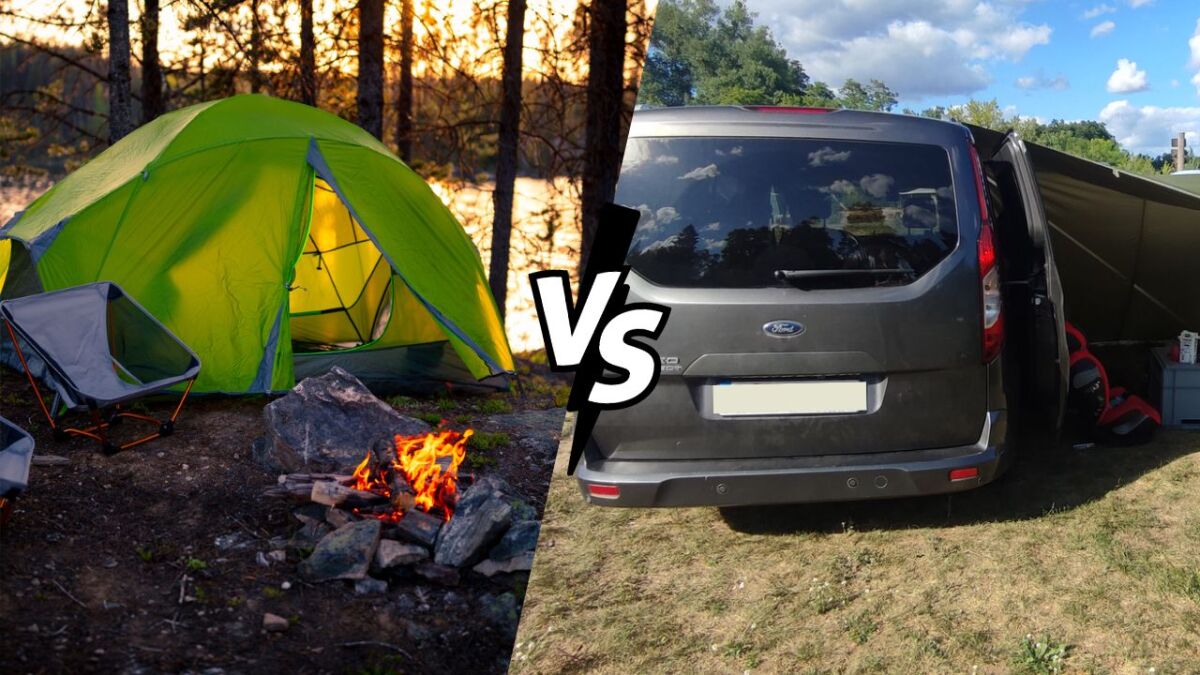
Sleeping in the car or tent - the advantages and disadvantages
👉 The key facts from this guide
- There is no clearly the best solution: Whether a car or tent is better depends on individual needs and circumstances.
- Weather conditions: Cars provide more warmth in cold weather, while tents are better ventilated in warm weather.
- Outdoor experience: For an authentic nature experience, the tent is the better choice.
- Travel style: For many stops, the car offers more comfort since no tent setup is required.
- Insect protection: In insect-rich areas, the car provides more protection.
- Campground: In remote areas or where cars are not allowed, the tent is the only option.
- Costs: Sleeping in a car can be pricier, especially if you have to rent a car. Camping is usually cheaper, but there may be costs for campsites.
- Safety: Both options require safety precautions, such as securely storing valuables and choosing a safe location.
Are you also faced with the tricky question of whether to sleep in your car or set up your tent on your next outdoor adventure?
I know, this can really keep you awake at night.
You toss and turn, the car offers comfort and safety - but the tent, that's the real nature experience, right?
I can tell you, I have also spent many nights awake, tossing and turning, weighing the pros and cons.
But do you know what?
I have the solution for you!
I have compiled my experiences and knowledge from countless nights under the open sky and created a guide.
He helps you make the perfect decision for your next adventure.
So let's tackle this together and find out if you're more of a car sleeper or a tent fanatic!
Sleeping in a tent or car? What is better?
Whether sleeping in the car or in a tent is better depends on individual needs and circumstances.
Here are the five most important factors that you should consider in your decision:
- Weather conditions: In cold weather, the car provides more warmth due to its insulation, while the tent ensures more pleasant ventilation in warm weather.
- Outdoor experience: For an authentic outdoor experience, the tent is the better choice.
- Type of travel: During a trip with many stops, the car offers more comfort as no tent setup is required.
- Insect protection: In insect-rich areas, the car provides more protection.
- Campsite: If camping is planned in remote areas or where cars are not allowed, the tent is the only option.
However, there is so much more to discover and learn when it comes to staying in the great outdoors.
Whether you are an experienced outdoor enthusiast or a beginner who has just discovered your love for the wilderness - I promise you that you will find many valuable tips and advice in the following sections.
Furthermore, buckle up and get ready for a deeper exploration of the advantages and disadvantages of sleeping in a car and in a tent.
Costs for Car and Tent
Let's get straight to a crucial factor: What costs can arise?
What costs are incurred when sleeping in a car?
When sleeping in the car, there are usually no high additional costs if you already own a vehicle and do not need any special equipment.
However, costs for parking fees may apply if you want to stay overnight in paid parking lots. Additionally, you should consider that the fuel consumption becomes significant during longer trips.
On the other hand: Some people also rent a car for a week and use it for their excursions.
As an example: A Ford S Max or an Opel Zafira Tourer costs 300 to 400 € per week. That's 40 to 50 € per day.
As a result, car camping can be pricier because vehicles cost significantly more than tents. A reliable car can cost several thousand euros. You also have to cover insurance, gasoline, and maintenance.
To go camping, all you require is a tent, a sleeping bag, and a sleeping pad. You can buy all of that for just a few hundred euros.
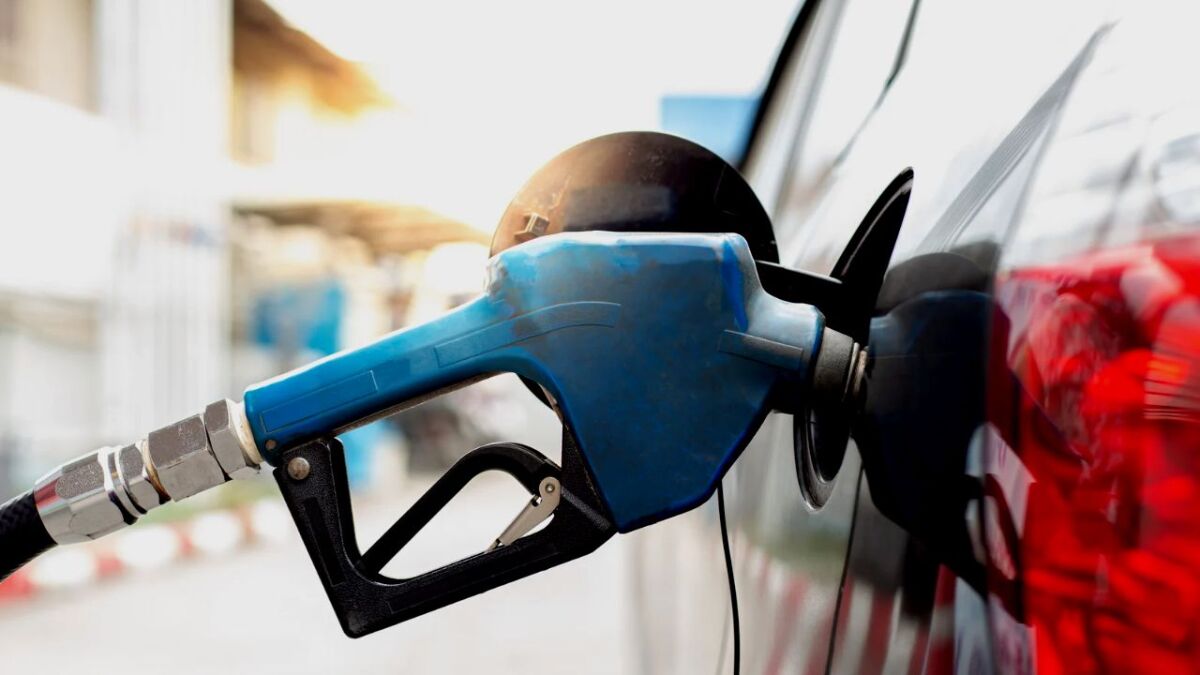
What costs are incurred when sleeping in a tent?
For sleeping in the tent, there are initially acquisition costs for the tent itself and possibly for a suitable sleeping pad and a sleeping bag.
Depending on the quality and comfort of the equipment, these costs can vary.
Furthermore, costs may arise for overnight stays at campsites or in designated camping areas. Make sure to choose a tent that is lightweight, compact, and easy to set up to save time and effort.
If you are traveling to a special place by train or bus, then travel expenses will be added.
Space and Parking Problems
How much space does the car offer for sleeping?
The space for sleeping in the car depends on the size and model of your vehicle. In most cases, the space is limited, especially if you haven't specifically equipped your car for overnight stays.
To make optimal use of the space, you can fold down the rear seats and spread out a mattress or sleeping pad on them.
However, keep in mind that there may be less space for luggage in the car if you use the back seat for sleeping.
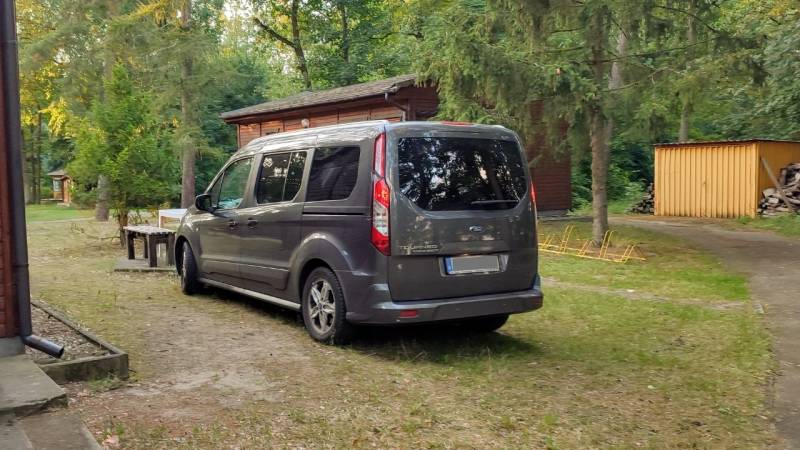
How much space does the tent offer for sleeping?
The size of the tent depends on the number of people it is designed for.
Individual person tents usually provide enough space for sleeping and some luggage. Larger tents offer more space, but they can also be heavier and bulkier.
Make sure to choose a tent that provides enough space for you and your luggage and at the same time, is lightweight and easy to transport.
If you are traveling alone for a longer period of time, a lightweight one-person tent is recommended. Here I have a comprehensive guide on tents, so that afterward you know what the right tent is for you.
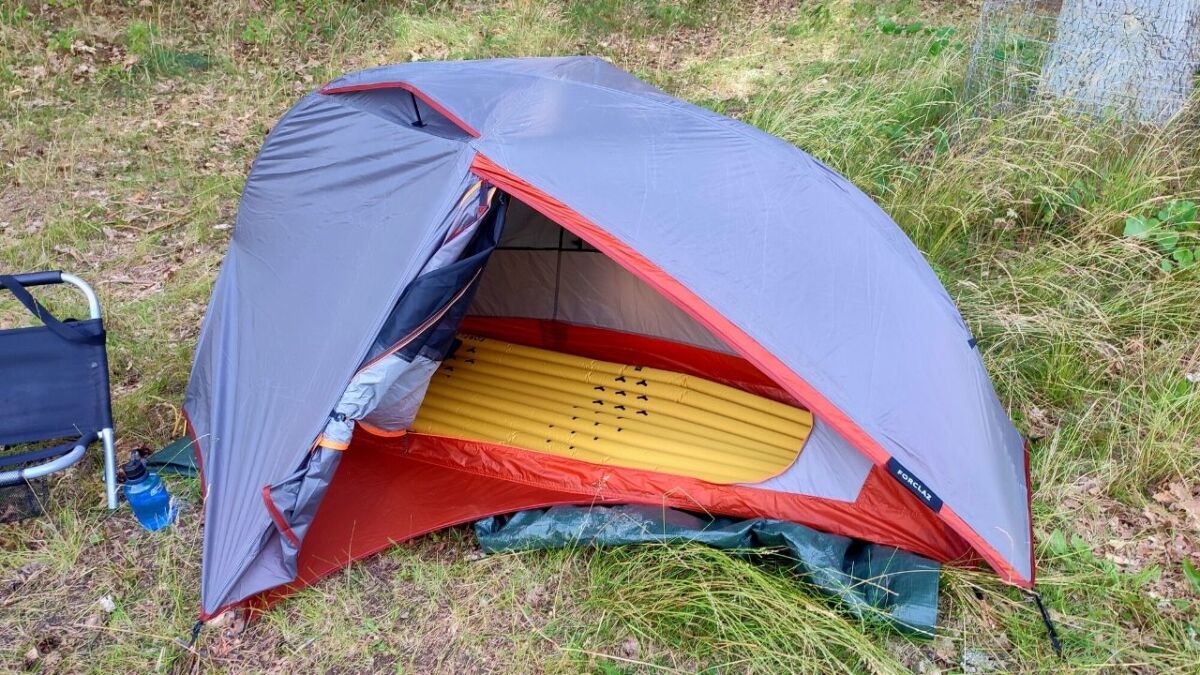
Where can you park and stay overnight with the car? Is sleeping in the car allowed in Germany?
In Germany, you are generally not allowed to sleep in your car everywhere. Ideally, you should look for a designated parking space or parking lot where sleeping is allowed or at least tolerated.
Freeway service areas and supermarket car parks can also be options as long as you adhere to the respective rules.
Make sure you do not park in residential areas or nature reserves, as this can cause trouble with residents or the local authorities.
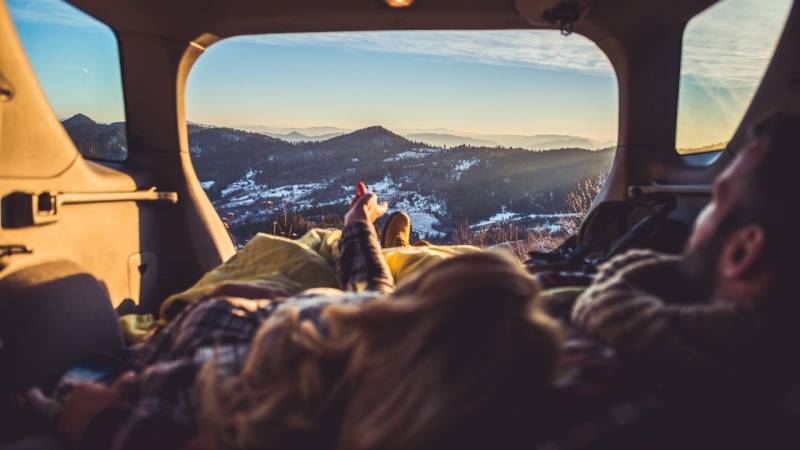
Where can you set up the tent and stay overnight? Is "wild" camping and tenting allowed in Germany?
In Germany, "wild" camping is mostly not allowed (Read here why and how). Therefore, you should stay overnight at official campsites or designated camping areas.
In some federal states, there are also so-called trekking sites where camping is allowed for one night. Here I have created a large list of places for legal wild camping.
Sometimes camping on private property with the owner's permission may be possible. Make sure not to leave any traces and respect nature, regardless of where you camp.
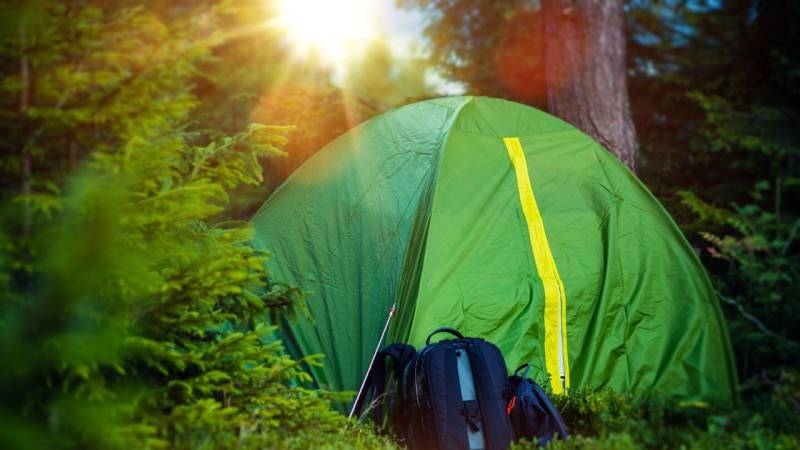
Time required
How long does it take to prepare the car for an overnight stay?
The preparation time for sleeping in the car is usually quite short.
You just need to make sure that the interior is tidy and clean and provides enough space for you and your sleeping gear.
Folding down the rear seats and spreading out a mattress or sleeping pad typically takes only a few minutes.
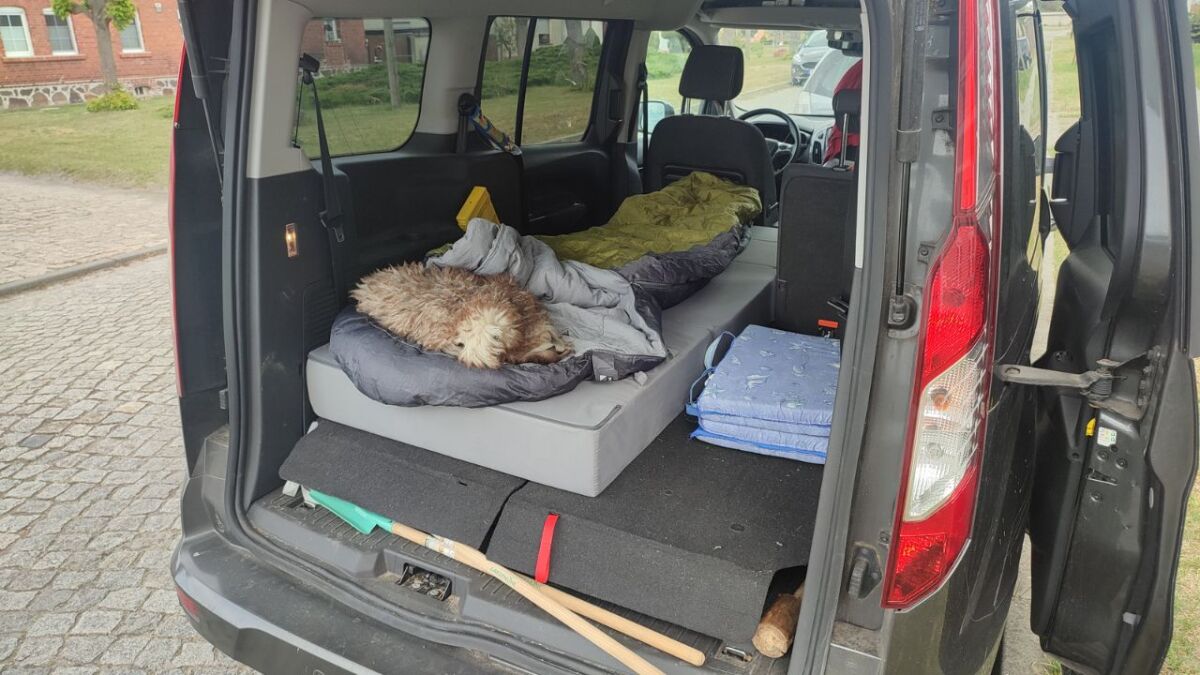
How long does it take to set up the tent for an overnight stay?
The time it takes you to set up a tent depends on the type of tent and your experience.
Some modern tents can be set up in a few minutes, while other tents require more time and practice.
To save time and facilitate setup, practice setting up your tent before your trip so that you are familiar with the process.
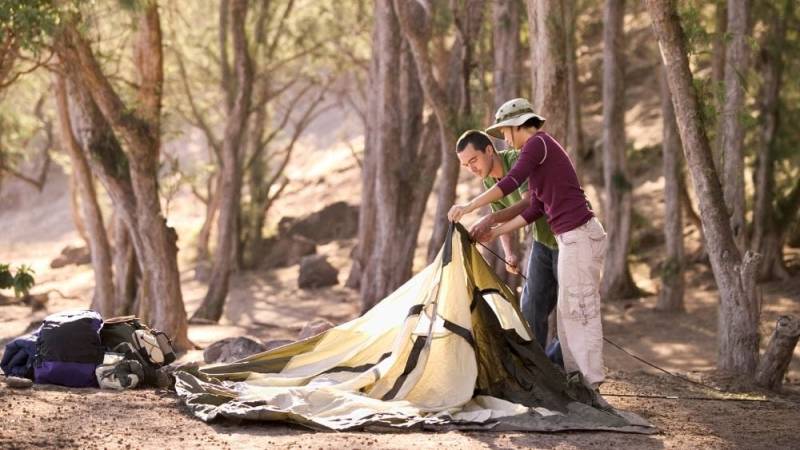
Personal Safety
What safety precautions should one take when sleeping in a car?
Make sure to lock your car and remove valuables from sight. Parking in well-lit, easily visible areas or near other vehicles can also help increase security (although it will be bright inside the car).
Ensure sufficient air circulation in the car by keeping the windows slightly open, but make sure no mosquitoes enter the car.
What safety precautions should be taken when sleeping in a tent?
Choose a secure place for your tent, ideally on a campsite. Do not leave valuables lying around and use lockers. Secure your tent well and keep a distance from bodies of water and danger zones.
It can also be helpful to have a pepper spray canister or a whistle within reach to be able to attract attention in case of an emergency.
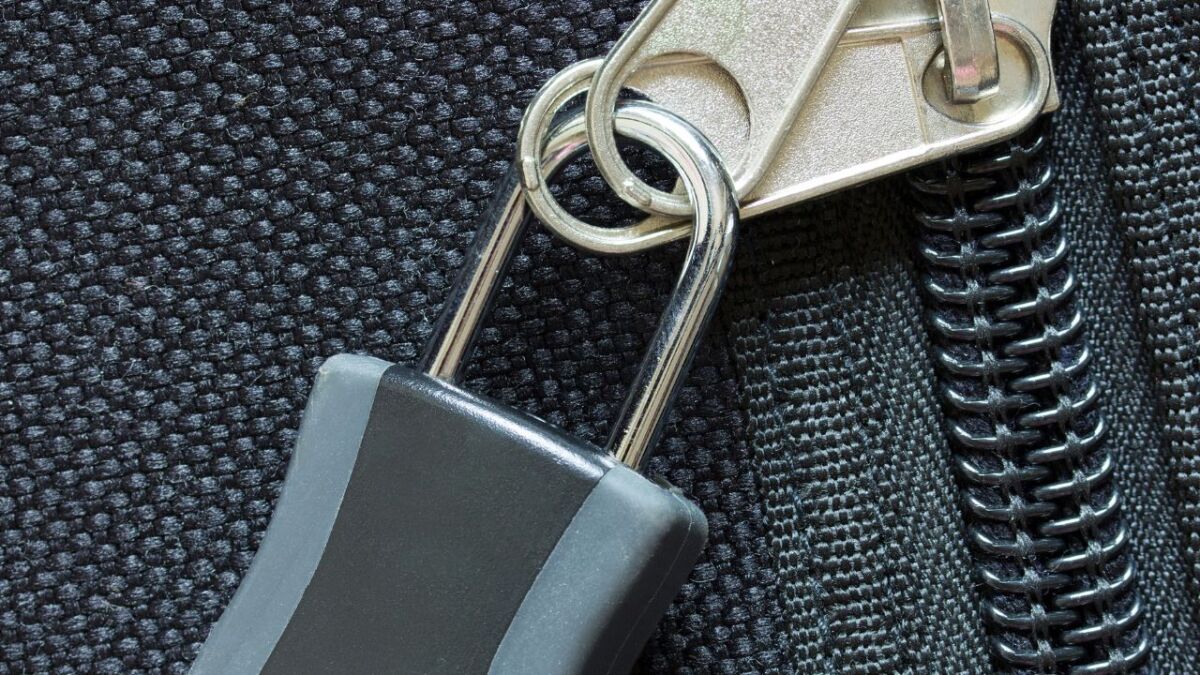
Temperature and Heat: Is sleeping in the car or in the tent warmer?
Sleeping in the car can initially be warmer due to better insulation, but it cools down over time. The heat in the car and in the tent therefore depends heavily on the quality of the equipment and the outside temperature.
In detail, this means that a car, although it has less direct contact with the ground and is better insulated, may have difficulty maintaining a constant temperature over longer periods of time, especially on freezing nights.
Without running the engine, which is not recommended, the car will eventually cool down. Therefore, it is also necessary to have a sleeping bag or at least a thick blanket in the car.
On the other hand, the heat in a tent depends on the quality of the sleeping bag, the sleeping pad, and the outside temperature. With the right equipment, sleeping in a tent can be comfortable even at low temperatures, although it is more susceptible to heat loss through the ground and the thinner walls.
Secret Camping: Is it better to secretly camp in a car or in a tent?
When secretly camping, sleeping in a car can be less noticeable, primarily in places where parked cars are common, while camping in a tent can be more difficult due to its visibility and the need for setup.
In detail, this means that sleeping in a car, especially in places like rest areas or residential areas where parked cars are common, can be less noticeable. However, it is important to comply with local laws and regulations to avoid problems.
On the other hand, secretly camping in a tent can be more difficult because the tent is more visible and needs to be set up. Nevertheless, camping in remote or densely wooded areas can be less noticeable.
Insects: Do you have less contact with insects in the car or in the tent?
In general, you have less contact with insects in the car. This is especially true when windows and doors are closed. In the tent, however, insects can be an issue. This is particularly the case if there is no insect screen.
In detail, this means that in the car, you usually have less contact with insects as long as windows and doors are closed. However, there is a possibility that insects can enter the car when doors and windows are opened.
In contrast, insects can be a problem in the tent, especially if the tent does not have an insect screen. Nevertheless, insect repellents and nets can help to keep insects away and increase sleeping comfort.
Noise Level: Is it quieter in the car or in the tent?
In the car, it can be quieter due to the thicker walls and closed structure, while in the tent, one is more susceptible to ambient noise.
In detail, this means that the car can better dampen external noises due to its thicker walls and closed structure. However, noises from passing vehicles or other people nearby can be disturbing.
In contrast, in the tent, one is more susceptible to noises from the surroundings, such as animal sounds, wind, or rain. However, earplugs can help reduce disturbing noises and improve sleep.
Rain resistance: Is it more rainproof in the car or in the tent?
In general, the car provides better protection against rain due to its solid structure and closed roof, while the rain resistance of a tent depends heavily on its quality, material, and construction.
The fact is: A car usually offers better protection against rain because it has a solid structure and a closed roof. However, condensation can be a problem if the car remains closed for a long time.
However, the rain resistance of a tent depends on the quality of the tent, the material, and the construction. A high-quality, waterproof tent can provide good protection against rain, but it is important to set up the tent correctly and ensure that no water accumulates on the roof.
Power supply: Do you have power in the car or in the tent?
In the car, you typically have access to power via the cigarette lighter or USB ports as long as the vehicle battery is working, while power supply in the tent is more limited and often relies on power banks, solar panels, or portable generators / power stations.
In detail, this means that in the car, you usually have access to power as long as the vehicle battery is working. This allows for charging devices and using electrical equipment such as a cooler box.
In contrast, the power supply in the tent is more limited. However, power banks or solar panels can be used to charge devices and provide power for personal needs.
Privacy: Do you have more privacy in the car or in the tent?
In the car, you tend to have more privacy due to the solid walls and tinted windows, while privacy in the tent may be lower as the walls are thin and possibly translucent.
This means that in the car, you generally have more privacy because the solid walls and tinted windows (if available) make it difficult to see from the outside.
However, it is important to note that parked cars may attract more attention, especially in residential areas or parking lots.
In contrast, you may have less privacy in the tent as the walls are thin and possibly translucent. However, setting up the tent in remote areas or using a tent tarp can help increase privacy.
Cleaning: Is it easier to clean a car or a tent?
A car can be more difficult to clean as dirt and other deposits can get stuck in the upholstery and crevices, while a tent is mostly easier to clean as it can be simply dismantled and wiped down.
In a more detailed consideration, cleaning a car can indeed be a challenge. The reason for this is dirt, sand, and other deposits. They can get stuck in the upholstery, floor, and crevices of the car.
However, it is possible to clean the car with a vacuum cleaner and cleaning agents.
In contrast, a tent is generally easier to clean as it can be simply dismantled, shaken off, and wiped down with water and mild soap if necessary. However, it is important to dry the tent before storage to prevent mold formation.
What additional equipment can be helpful when sleeping in a car or tent?
Among the useful additional items for sleeping in the car or tent are:
| Element | Description |
|---|---|
| Sleeping pad or mattress | A comfortable sleeping pad increases sleeping comfort and insulates against cold. |
| Sleeping bag or blanket | Depending on the season and temperatures, a suitable sleeping bag or blanket is significant to stay warm. |
| Pillow | A comfortable pillow contributes to a restful night's sleep. |
| Flashlight or headlamp | A light source is useful for navigating in the car and orienting oneself at night. |
| Tarp | A tarp can serve as additional protection against wind and rain or as sun protection. |
| Blackout curtains or sun protection | These can help increase privacy and darken the car or tent for a more restful sleep. |
Is there any special equipment or accessories that increase safety when sleeping in a car or tent?
Some useful safety items for sleeping in the car or tent are:
- Pepper spray: Pepper spray can help protect you from potential dangers in emergencies.
- Whistle: A loud whistle can attract attention when you need help in an emergency.
- First aid kit: A well-equipped first aid kit is essential for treating minor injuries or health problems during your time in nature.
- Power bank: A power bank ensures that your mobile phone is always charged, even in remote areas, so you can call for help in case of emergency.
- GPS device or navigation system: A GPS device or navigation app on your smartphone can help you navigate unfamiliar areas and quickly find your way back in case of an emergency.
- Multitool: A multitool is a versatile and useful tool that can be used in various situations, such as repairing equipment or dismantling a tent.
- Emergency blanket: An emergency blanket made of Mylar reflects body heat and can help maintain body temperature if you are stranded in a cold environment.
- Fire starter: A fire starter like a fire steel or waterproof matches allows you to ignite a fire in emergencies to stay warm or prepare food.
The selection of the right equipment and accessories can help increase your safety and well-being during your adventures in the wilderness.
Prepare yourself for all possible situations by having the necessary equipment with you to be able to respond to unexpected challenges and emergencies.
If you want to know what equipment I own and regularly use, then check out my equipment list here.
How can you modify the car for a more comfortable overnight stay?
To modify the car for a more pleasant overnight stay, you can take the following steps:
- Fold down or remove the seats: If possible, fold down the rear seats or remove them to create more space for sleeping.
- Window insulation: Use window insulation mats to keep heat inside the vehicle and reduce condensation.
- Ventilation: Leave a window slightly open or use a special ventilation system to ensure fresh air supply and prevent condensation.
- Organization: Use storage boxes or bags to keep your equipment neat and easily accessible.
- Living area: Create a cozy living area by adding pillows, blankets, and fairy lights.
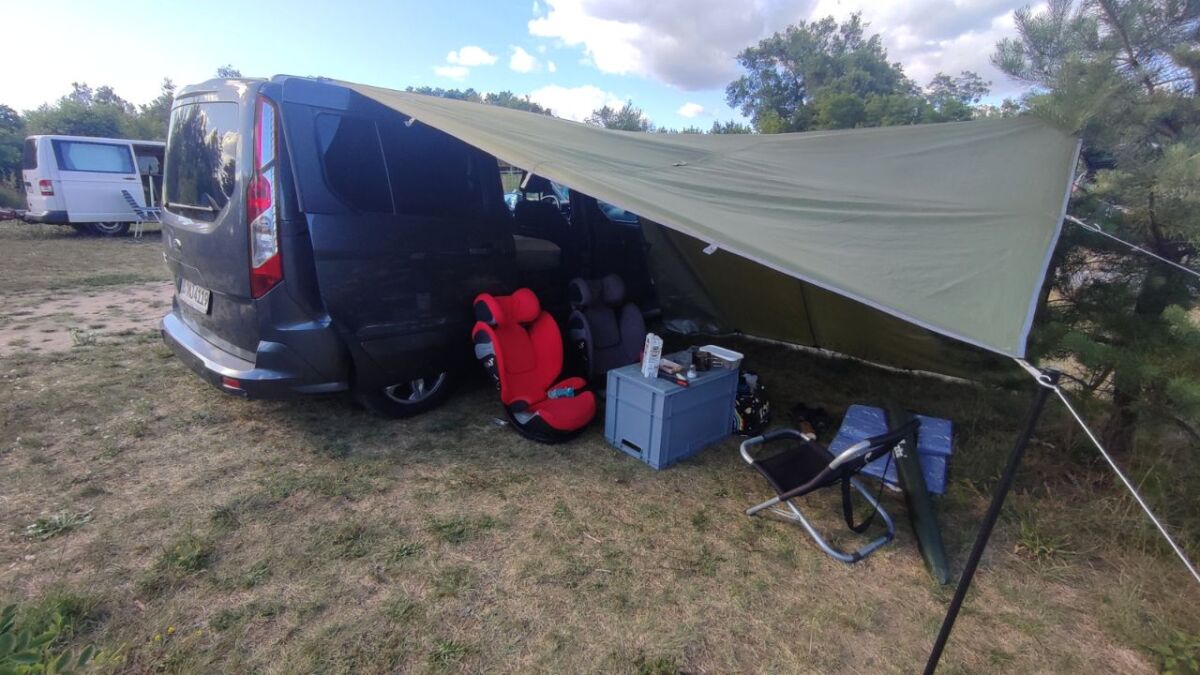
How can you modify the tent for a more comfortable overnight stay?
To modify the tent for a more comfortable overnight stay, you can do the following:
- Tent groundsheet: Use a tent groundsheet or tarp to protect the ground from moisture and dirt.
- Tarp: Stretch a tarp over or next to the tent to provide additional protection from wind, rain, or sun.
- Ventilation: Make sure the tent's ventilation openings are open to promote air circulation and reduce condensation.
- Organization: Use small storage bags or pouches to neatly store your equipment inside the tent.
- Lighting: Attach a small lantern or string lights inside the tent to create cozy lighting.
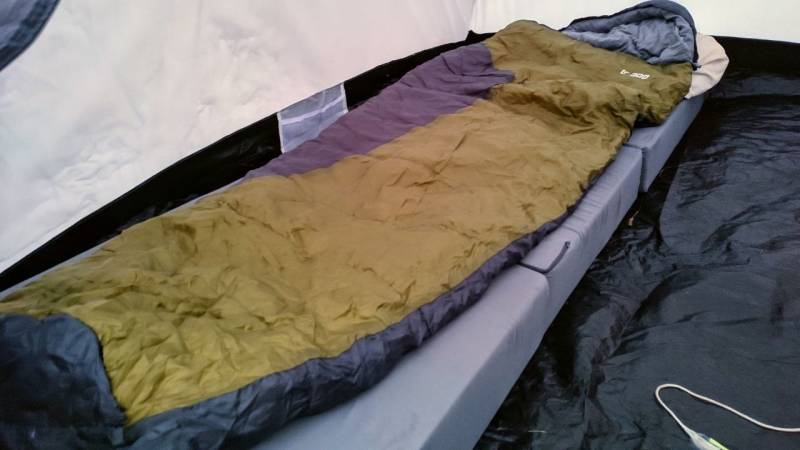
What alternatives are there to sleeping in the car or camping?
If you are seeking alternatives to sleeping in the car or tent, the following options may be of interest to you:
- Hammock: A hammock is lightweight, space-saving, and provides a comfortable sleeping option between two trees. Read my guide here.
- Bivouac: A bivouac sack (or bivouac shelter) is a waterproof cover for your sleeping bag and is suitable for minimalist overnight stays.
- Hostels or guesthouses: If you are willing to spend a little more money, hostels, and guesthouses offer a comfortable and safe sleeping option.
- Tarp: A tarp is a waterproof tarpaulin that is stretched over the sleeping area and provides protection from rain and wind without obstructing the view of nature. Read my guide here.
- Mountain huts or shelters: In some hiking areas, there are huts that provide shelter and sleeping options for hikers.
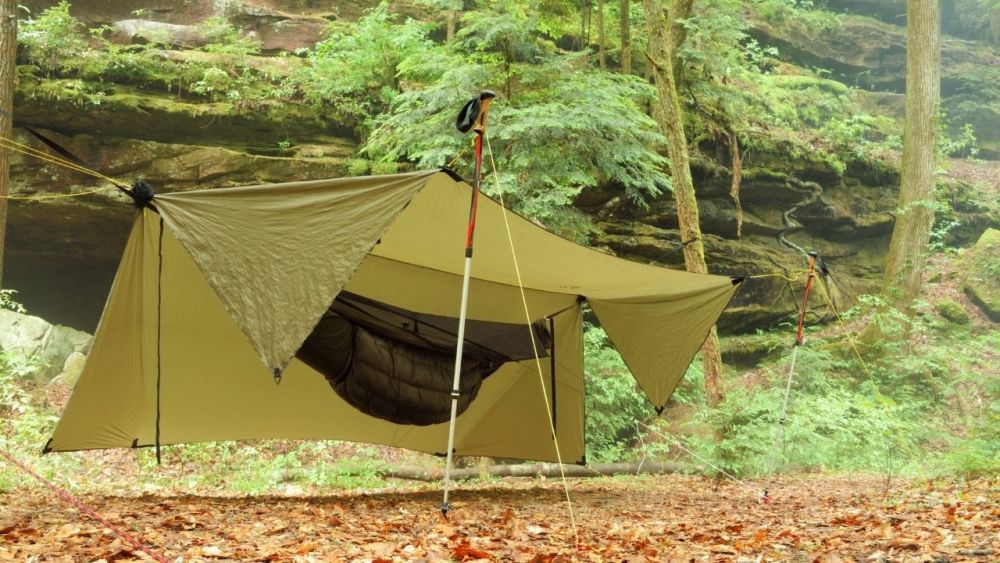
Car or tent - which option is best suited for you?
The answer to this question depends on the following things:
- your personal preferences
- your comfort needs
- the circumstances of your journey
- your need for safety
If you prefer more protection from weather and surroundings and less effort in setting up and taking down, sleeping in the car could be better for you.
If, however, you are looking for a more intense nature experience and want to be more flexible with your sleeping arrangements, camping could be the ideal choice.
No matter if you sleep in the car or in a tent, the most important thing is that you feel safe, have fun on your adventure, and respect nature.
Remember that nature gives us strength and inspiration - so enjoy it to the fullest. And who knows, maybe on your next trip you will discover an entirely new way to sleep under the stars that you were previously unfamiliar with.
Always keep your eyes open for new experiences, and don't forget to take a little humor with you on the way.
If you wake up one morning and realize that you forgot to put your shoes in the tent, and they are now full of rainwater - don't get too upset about it and make the best out of the situation.
Finally, it is these unexpected experiences that make our adventures in nature so unique and unforgettable.
So pack your bag, grab your equipment, and get ready to start the next chapter of your outdoor adventure - whether in the car, in the tent, or in an entirely new sleeping arrangement.
Do you prefer sleeping in the car or in a tent while camping? Share your tips and experiences in the comments.


Author of the guide
Martin Gebhardt
Hey, I'm Martin. On my blog, you will learn the basics and numerous details about living in the wild. I think survival, bushcraft and the good life in nature are the keys to happiness. Find me here on Instagram or on YouTube. You can find more about my mission on the About Me page.
Was this guide helpful?
22 people found this guide helpful.
5.00 out of 5 points (22 Ratings)
Comments (0)
This post may contain affiliate links. So if you click on the links and make a purchase, I will receive a small commission at no additional cost to you. Click here, to learn more about it.


